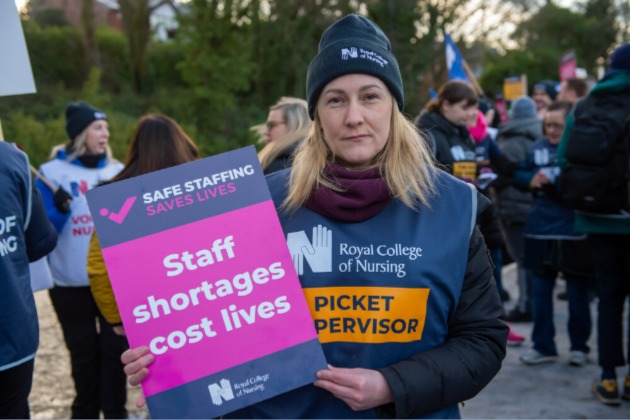Amid increasing concerns about the future of sexual and reproductive health services, the RCN Public Health Forum is taking action
“There’s a nervous edge around sexual health currently,” says Su Everett, an RCN Public Health Forum member and senior nurse lecturer at Middlesex University. “Nurses who work in services that have lost funding or contracts are leaving the specialty. This is a loss of expertise that could have dire consequences for the future.”
Following changes to the commissioning and provision of services, all areas of public health have been suffering from cuts. In particular, staff working in sexual and reproductive health (SRH) have reported growing concerns as lack of funding, education and recruitment have led to increased pressures.
Specialist areas are often the first to suffer, even though they can’t simply be absorbed elsewhere. “It is a highly-skilled person who works with cases such as sexual abuse, rape and child protection,” says Su. “As cuts continue to squeeze services and experienced staff are lost, where will these patients go?”
There’s a nervous edge around sexual health currently
Despite advances, there is still a stigma surrounding sexual health clinics and building up trust with patients is vital. By reducing clinical services, patients will have less choice and are therefore less likely to access the help and treatment they need.
“With increasing incidence of antibiotic-resistant gonorrhoea and other sexually transmitted infections, this is not the time to reduce services and it will ultimately lead to an increased financial burden on the NHS,” says Su.
Infection rates are already rising. Chlamydia diagnoses have increased to 128,000 among high-risk 18-24-year-olds over the past five years, despite a drop in the numbers getting tested. There has also been a 12% rise in syphilis diagnoses and new STIs such as MG are adding further pressures to services.
Many sexual and reproductive health services are integrated, so as clinics shut down every aspect of SRH care will be affected. Women will find their choice of contraception limited as well, with less access to options like implants and intrauterine devices.
In response to these issues, the RCN carried out a survey of health care staff working within SRH services.
Nurses reported significant staffing pressures without any clear planning for the future and a lack of education and opportunities for staff development.
Several key pieces of forum work are being developed to begin addressing these issues. “Quality SRH services are vital to support wider health and wellbeing,” says chair of the RCN Public Health Forum Jason Warriner. “We will continue working as a forum and wider organisation to ensure that well-planned and well-staffed services are available.”
New sexual health resources are now live on the forum webpages. To improve access to education and training opportunities, a page detailing a selection of courses across sexual and reproductive health, contraception and HIV is available.
Experts from the forum are also sitting on a working group with colleagues from across the specialty to develop best practice for online SRH services. “The development of online services is a welcome means of widening accessibility to care,” says Jason. “But it is important to ensure that safety and quality of care are maintained and that vulnerable patients continue to be protected.”
Other work on sexual health subject guides, raising the profile of SRH nursing and increasing training opportunities is also planned.








